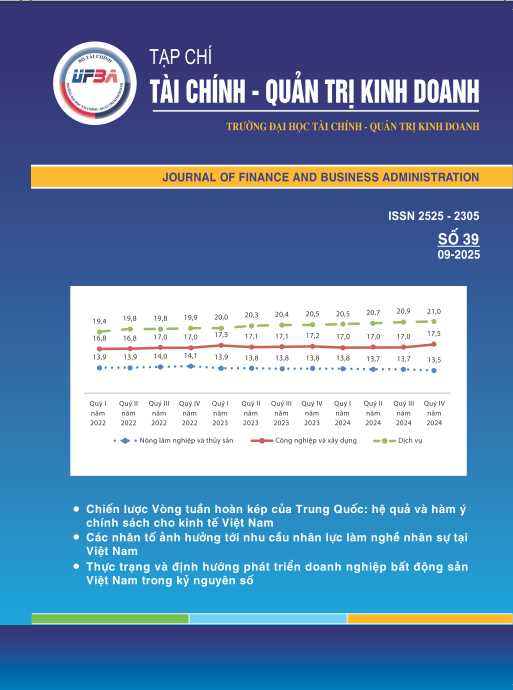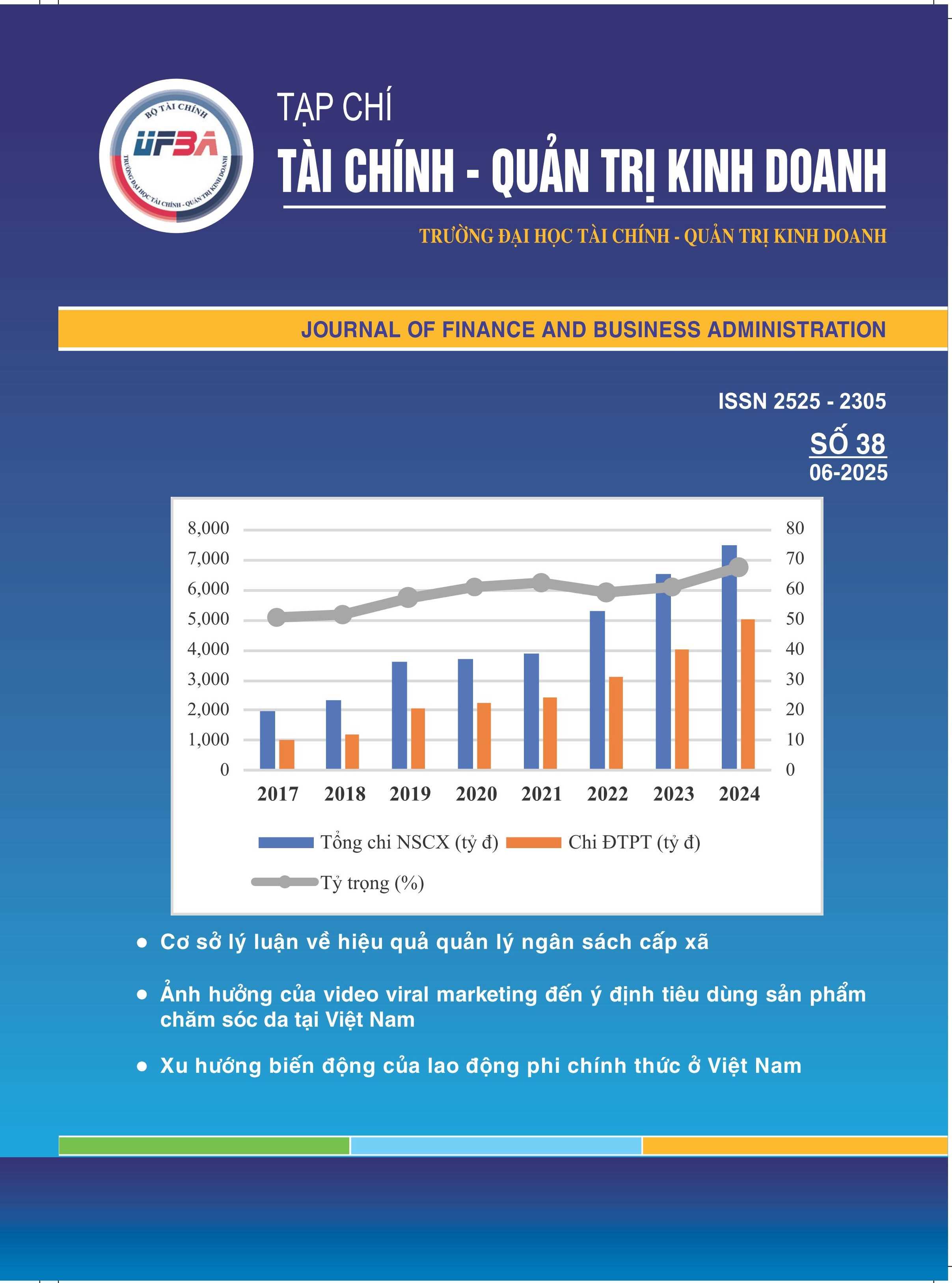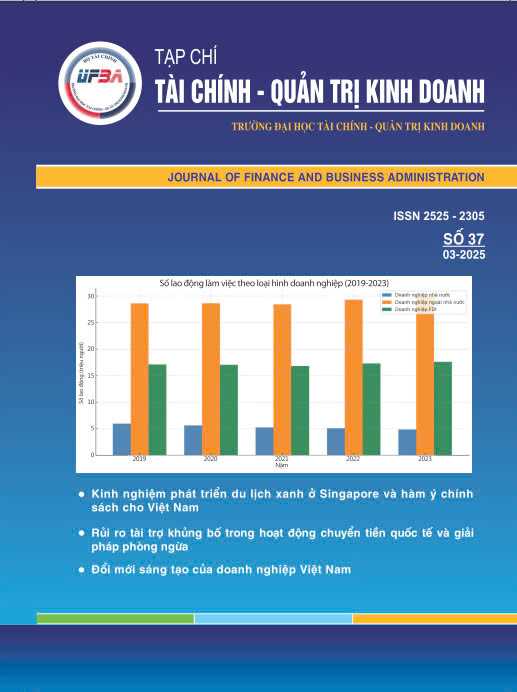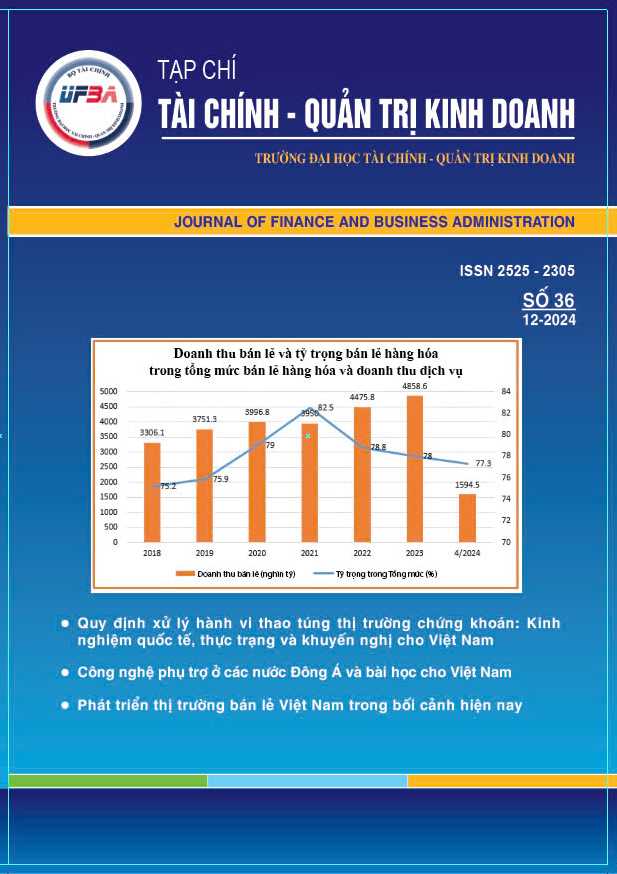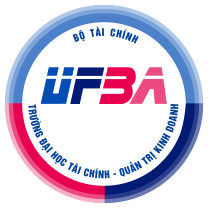JOURNAL OF FINANCE AND BUSINESS ADMINISTRATION, NUM 33.T03_2024
1. Factors affecting the capital structure of listed real estate - construction enterprises in Vietnam
Nguyen Thi Cam Thuy
This article studies factors affecting the capital structure of listed real estate and construction enterprises in Vietnam in the period from 2016-2021. The influencing factors that the article mentions include: Return on assets, return on equity, rate of change of total assets, liquidity, enterprise size, economic growth rate and economic inflation rate. The results of the study show that the profitability of equity and business size have a positive influence on capital structure, including the ratio of debt to total capital and the ratio of debt to equity. Meanwhile, asset profitability and liquidity have a negative impact on capital structure, including the ratio of debt to total capital and the ratio of debt to equity.The rate of change in total assets and the economic inflation rate have the same influence on the ratio of debt compared to total capital, but there is no basis to conclude about the influence on the ratio of debt compared to equity. With the economic growth rate, there is not enough basis to conclude the impact on both the ratio of debt to total capital and the ratio of debt to equity.
2. Organizing of information processing according to revenue centers at member units of Vietnam Cement industry Corporation
Nguyen Thanh Huyen, Do Van Luong, Trinh Thi Thu Hoa
Management accounting is an important tool in corporate management. Responsibility accounting is one of the contents of management accounting, an effective tool to help managers perform administrative functions effectively. Organizing private accounting effectively helps businesses improve the operational efficiency of each department and achieve the unit's overall goals. This article studies the theory and current situation of information processing organization according to revenue centers at member units of Vietnam Cement Industry Corporation (VICEM). Processing responsibility accounting information contributes to converting input information into output information according to information requirements.
3. International experience on financial policy to develop a shared economic model and lessons for Vietnam
Tran Thi Ha, Nguyen Thi Huong
The sharing economy is a newly born business model, based on the sharing of resources and the application of achievements in science and technology, especially in the field of information technology. Currently, this model is developing strongly and requires policies to promote and control negative impacts from the development of the model. Around the world, a number of countries have used financial policies to achieve the above goal with a focus on state budget spending policies for science and technology development, preferential tax and fee policies for participating businesses, especially startups, in addition to control measures to prevent tax loss from transactions made between members. Through reviewing the experiences of other countries, important lessons for Vietnam will be drawn.
4. Travel decisions of the LGBT community in Vietnam: the role of destination image and LGBT activities
Nguyen Quynh Giang, Phung Mai Huong, Nguyen Khanh Linh, Cao Phuong Uyen, Do Huong Giang
This research examines the mediating role of destination image in the relationship between LGBT activities and the decision to travel in the LGBT community. A survey was conducted to gather data from 357 respondents in the LGBT community. The data was further processed and analyzed by utilizing structural equation modeling (SEM) by using AMOS 24. The results indicate that LGBT activities have a considerable influence on a destination’s image, leading to stronger travel decisions. Based on the findings, this research paper enriches the empirical research about LGBT travel and tourism prospects in Vietnam, thus proposing some recommendations for hotels, destinations, travel agencies and tourism managers in order to attract more potential LGBT visitors.
5. Basic principles for effective knowledge communication
Nguyen Trong Nghia
With appropriate knowledge transmission principles, instructors can create interesting and effective learning experiences for students. In these experiences, students can acquire essential knowledge and social skills to apply in their future work and life. There are several principles that educators can use to support students with varying interests, abilities, and learning styles. If you are an educator or professional in the field of education, understanding these knowledge transmission principles can enhance your chances of success, as well as those of your students in the classroom or course. This article outlines three effective principles for transmitting knowledge to learners.
6. Experience in developing the digital economy of some Southeast Asian countries - Lessons for Vietnam
Bui Van Bang
The world is witnessing a Fourth Industrial Revolution, a period of transformation unlike any other in history. This comes from the strong development of digital technology, making the digital economy the most important feature and trend in current economic development. From the successes and failures in promoting the digital economy in Southeast Asian countries, Vietnam can draw important lessons to promote digital economic development in Vietnam
7. Cooperation between higher education institutions and enterprises in urrent human resource training
Nguyen Thi Phuong Thuy, Vu Duc Anh, Pham Thi Thu Huong
Under the strong impact of the 4th Industrial Revolution, which has transformed the economy from an industrial economy to a digital economy, cooperation between higher education institutions and businesses is a common trend. inevitable changes in the world to create high-quality human resources to meet market needs. However, the current cooperation between higher education institutions and businesses in human resource training still has many limitations and has not fully exploited the advantages of this cooperation. This article presents a general overview of cooperation between higher education institutions and businesses, analyzes the current state of human resources, and cooperation between higher education institutions and businesses in human resource training in the world. That basis proposes solutions to strengthen cooperation between higher education institutions and businesses in human resource training today.
8. Improvement of supervision of insider trading in Vietnam's stock market
Pham Tien Dat, Nguyen Thi Huong
Insider trading (GDNG) is a serious violation of regulations in the stock market, this behavior harms the interests of investors, listed businesses and the market. Generally speaking. In Vietnam, GDNG is still a painful phenomenon in recent times, many incidents have been mentioned, however the cases of violations handled are very limited, in the period 2017-2023 there was only 01 case. GDNG is discovered and processed, and very few people know about the regulations related to GDNG. This article was written with the goal of evaluating the current status of educational supervision activities in Vietnam, identifying shortcomings and limitations, thereby proposing recommendations to improve this activity.
9. Circular economy in Vietnam: Situation and solutions
Nguyen Thi Thuy
In the context of international economic integration, circular economy development has become an important trend for many countries, especially when global resources are increasingly scarce. This helps effectively solve the problem of opposition between economic benefits and environmental protection. Ircular economy is defined as a closed production cycle in which resources and waste from previous production processes are recycled or reused, and the scrap stream becomes an input source for the cycle new production. Based on an assessment of the current situation, the author emphasizes the advantages and disadvantages of circular economy in Vietnam. Grasping these potentials and difficulties, the article proposes some solutions to promote the circular economy in Vietnam in a sustainable and environmentally friendly way.
10. Enterprises use e-commerce in Vietnam: Benefits and risks
Nguyen Thi Thuy Linh
E-commerce is now becoming a popular trend in the world in general and in Vietnam in particular. E-commerce in Vietnam in recent years has changed quite strongly, constantly growing, and businesses participating in online sales are increasing. E-commerce brings many benefits to businesses such as diversifying customer files, reducing business costs, and flexible sales time and space. Besides, e-commerce also brings a number of risks such as risks related to security, high competitive pressure, and lack of customer trust. From there, the article offers some solutions to limit risks in the process of participating in e-commerce for businesses.

